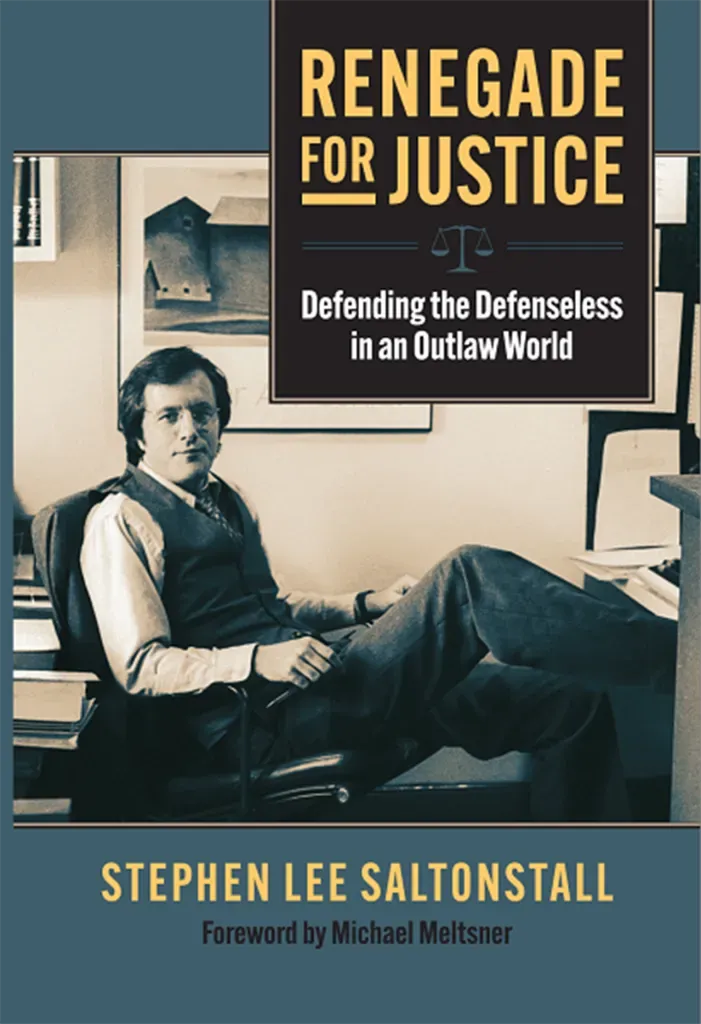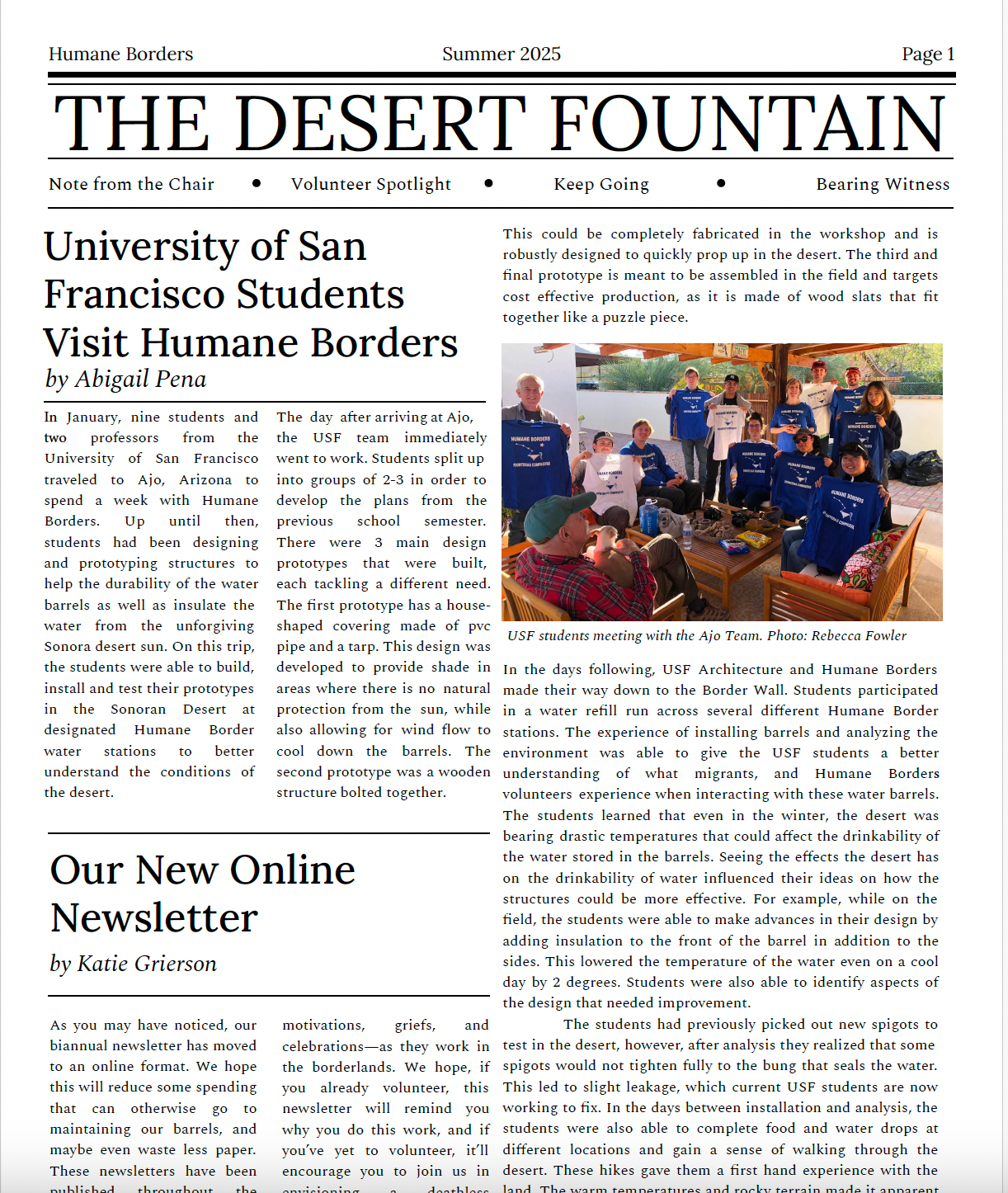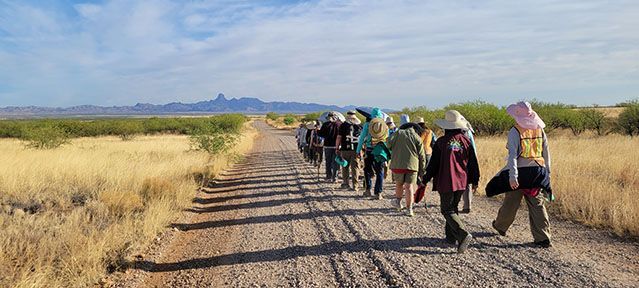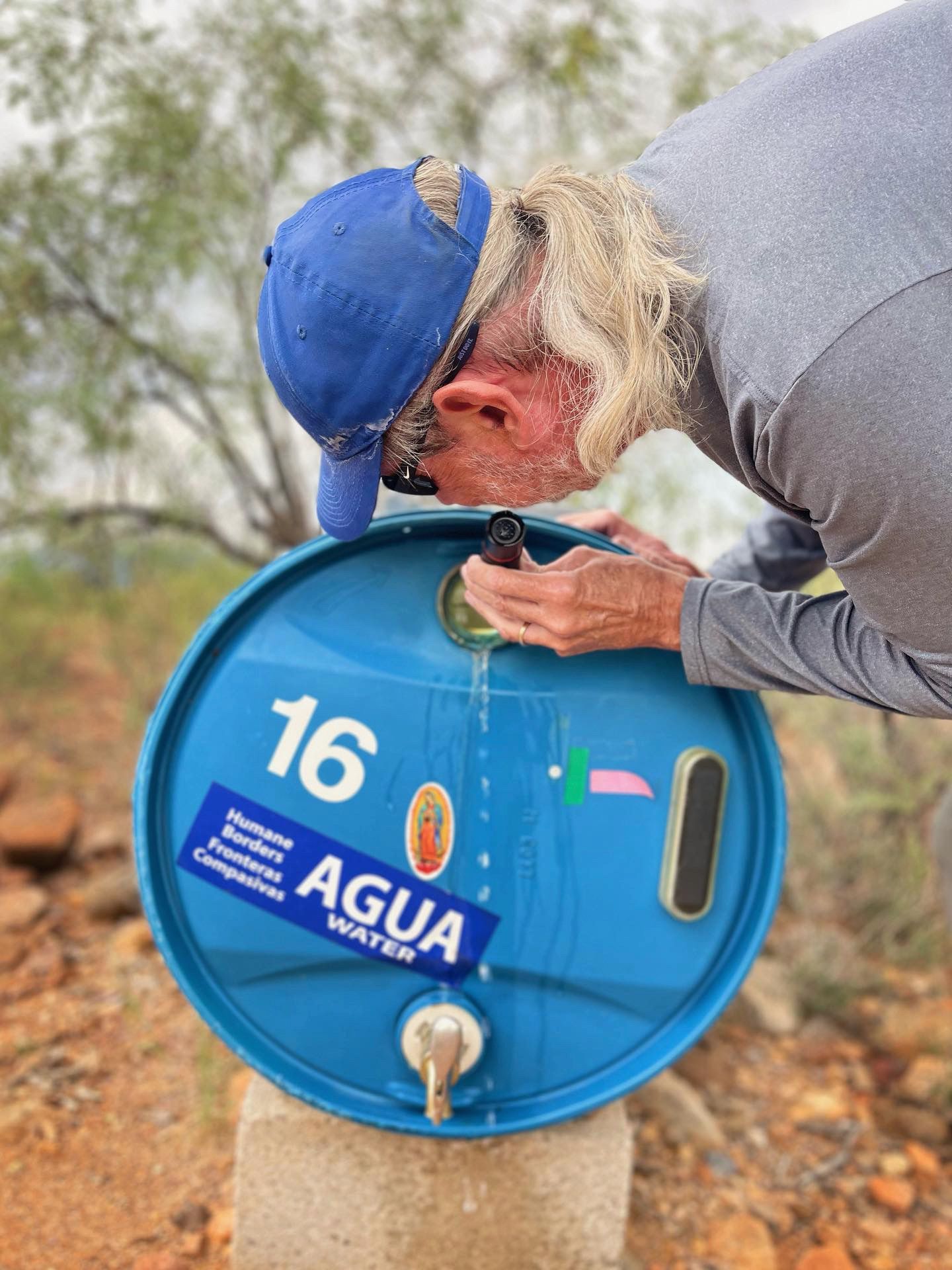Blue barrel diaries
a humane borders blog
Volunteer Spotlight
Kirk Astroth Reviews Renegade for Justice:
Defending the Defenseless in an Outlaw World,
A Memoir from a Humane Borders Volunteer

In his recently-published memoir, long-time Humane Borders volunteer Stephen Saltonstall admits that when you are a criminal defense lawyer, everyone except your client is hoping you will fail—the prosecution, the gallery in the courtroom, the media, and the public in general. It takes a bit of masochism and personal fortitude, he admits, to endure in this environment. But he enjoyed a bit of guilty pleasure when he prevailed against such odds. Yet, Saltonstall is an understated and humble public servant without a hint of hubris. Throughout the retelling of some of his most memorable court cases, he tells an engaging and fascinating tale of the US justice system during his years as a defense attorney. This “no-holds-barred” recounting of some of the major cases Saltonstall took on, largely pro bono or for little monetary compensation, suggests that the bail system should be abolished, that the Forest Service should be dismantled, that the death penalty should be ended, and that our belief in the presumption of “innocent until proven guilty” is largely an illusion, and unbeknownst to many, it is not enshrined in the Constitution.
For three years, Saltonstall was president of the Vermont Nature Conservancy when he took on a pro-bono role to challenge an ill-conceived timber sale for a forest area called Lamb Brook, where bear and neo-tropical bird habitat was threatened with destruction. Sorting through mounds of government documents and files to build a case against this timber sale, Saltonstall can optimistically observe that what keeps him going is that “sometimes a diamond hidden within the spoiled honeypots of odoriferous bureaucratic goo.” From cases of defending serial killers to protecting children from parents who refused to provide medical care to dying children (“Parents may be free to become martyrs themselves, but it does not follow that they are free to make martyrs of their children”) to free speech cases and anti-nuke protests, to opposing the “war on drugs,” Saltonstall battles with a system that is racist, elitist, class-dominated, and in which many police are willing to perjure themselves simply to get a conviction against anyone.
Saltonstall has a special enmity for corrupt police who he says “will lie like rugs, the deep pile, wall-to-wall shag variety, both on the witness stand and in their written reports if they think they need to do that to ensure a conviction” of someone, regardless of their innocence or guilt. Worse still, they are self-righteous about their behavior. “Lying is a well-known axis of cop culture.” Even judges (“whose inflated egos dwarf their legal judgment…while emitting vibes of condescension toward defense lawyers”) do not escape his wrath, notably those who are prejudicial to women and minorities who are more than willing “to screw your client and you personally if the opportunity arises.” He admits that there are some excellent judges who are bright and impartial, but in state courts especially, many are political operatives, big money contributors or bundlers, hacks or hangers-on whose appointments have little to do with merit.
Saltonstall had to move west for health reasons upon his retirement from the legal profession, and after he and his wife moved to Tucson, he began volunteering with Humane Borders. His years of resupplying water stations out in the desert comprise the epilogue to this readable volume. Continuing his theme of supporting those who cannot defend themselves.
I recently rode along with Stephen on the Arivaca water run because I wanted a chance to talk to him about his life and his book. He had just come back from a hip injury that kept him out of doing water runs for the past eight months. In addition to being a humble and engaging friend, he also told us about a chapter that the publishers demanded be removed from his book, along with all his photos. If you have a chance, catch a ride with Stephen on his next trip to the desert.
He will share many heartwarming and heart-rending stories, including this one that ends his book: “As I opened a water barrel, I found a five-peso coin that a migrant had left on it: a gesture that brought tears to my eyes and renewed my faith in the power of compassion and the need to continue, even in a small way, defending the defenseless in an outlaw world.”
Stephen Saltonstall’s memoir Renegade for Justice is available for purchase through the University of Kansas Press.



